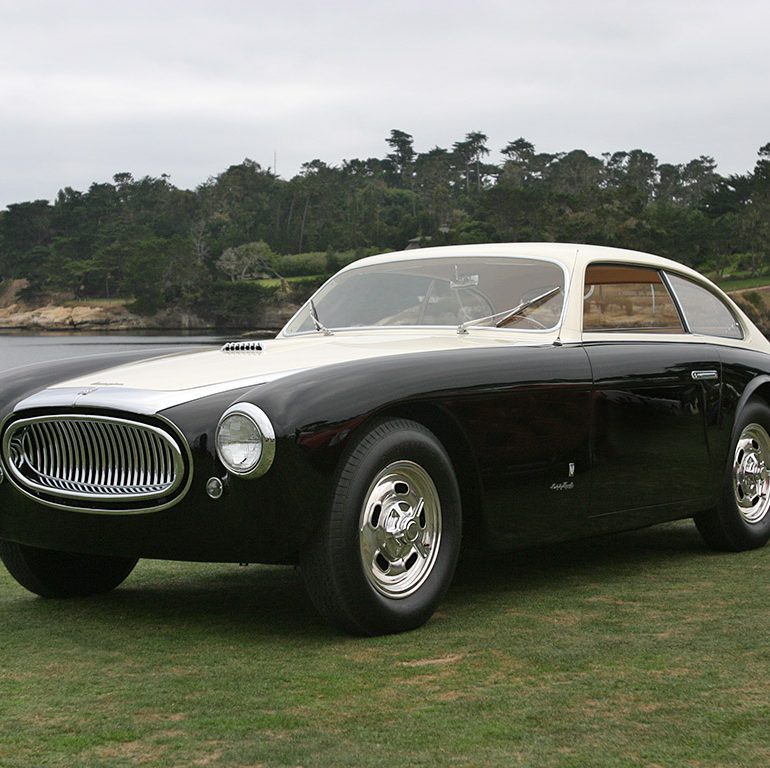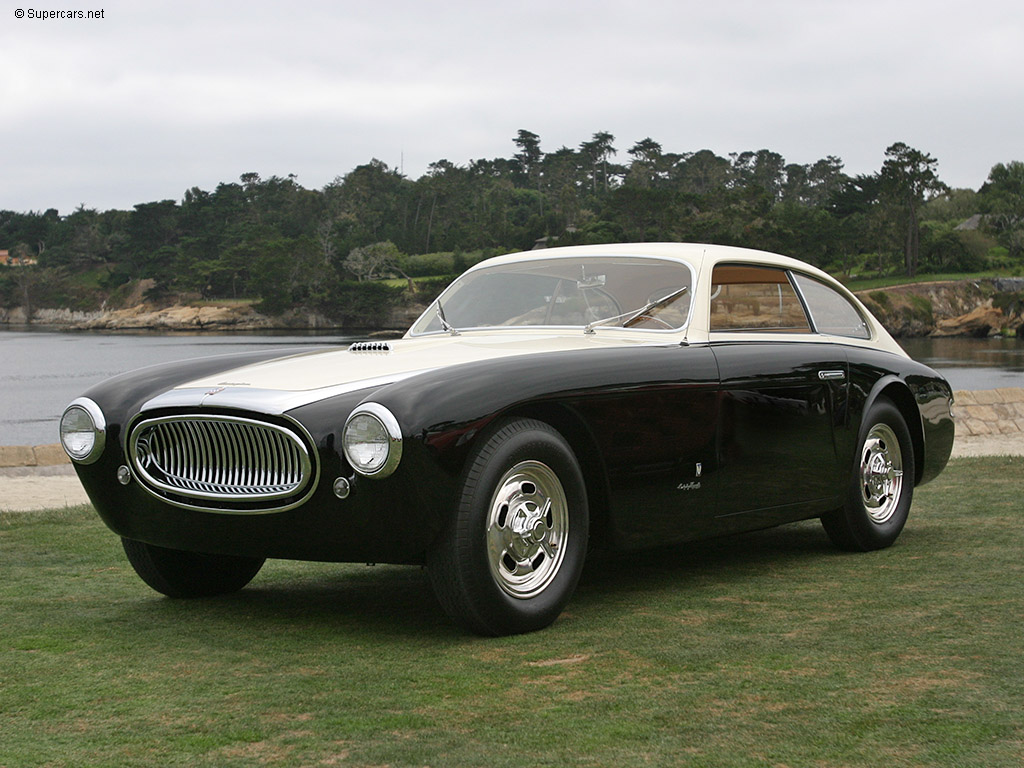1951 Cunningham C3 Continental
As the only series production model manufactured at Cunningham’s Palm Beach, Florida factory, the C3 was a hot rod in European disguise. Coming from one of the first American companies to manufacture for and compete in European endurance racing, the C3 benefited from three C-2Rs that contested the 24 Hours of LeMans and also won at Road America and Watkins Glen.
To be eligible for LeMans in 1953, Briggs Cunningham needed to produce 25 examples, or at least show that he had intent to produce 25 road-going cars. So, the C3 was immediately drawn up and offered American Hemi power under a gorgeous European body.
Each C3 used a ladder-type tube chassis which was similar to the C2’s. It had an independent coil-spring front suspension and Chrysler live axle located by parallel trailing arms. Braking was provided by Mercury drums.
Chrysler helped support the project and supplied their firepower V8 at a discount. Cunningham kept the engine almost stock and used his own manifold which attached four Zenith downdraft carburetors. Gearchange was handled by a semi-automatic Chrysler transmission and with 235 bhp (175 kW) on tap, 7.0 second runs to 60 mph were possible.
The body, which is one of the most striking to be fitted to an American sports car, was designed by Michelotti Vignale and closely resembles some of his Ferrari 212s. This is also true of the interior with its oversize gauges and small sporting seats. The only cue that this jewel came from America is the Cunningham script and the huge engine under the hood. Each body took Vignale over two months to complete.
The first C3 competed at Watkins Glen in September 1952 before being displayed across America and at the Paris Auto Show. Series production began in 1953 with 20 coupes and five convertibles being made. Each cost nearly $12 000 USD, and were as highly regarded as Ferraris in their time.
1951 Cunningham C3 Continental Gallery
See full 1951 Cunningham C3 Continental Gallery
In Detail
| price $ | $11 422 USD |
| engine | Chrysler FirePower V8 |
| position | Front Longitudinal |
| aspiration | natural |
| valvetrain | OHV, 2 Valves per Cylinder |
| fuel feed | 4 Zenith Carburetors |
| displacement | 5424 cc / 331.0 in³ |
| bore | 96.8 mm / 3.81 in |
| stroke | 92.1 mm / 3.63 in |
| power | 175.2 kw / 235 bhp @ 4400 rpm |
| specific output | 43.33 bhp per litre |
| bhp/weight | 147.98 bhp per tonne |
| body / frame | Aluminum body over Tubular Steel Chassis |
| driven wheels | RWD |
| front brakes | Mercury Drums w/Delco Hydraulic Assist |
| f brake size | mm / in |
| rear brakes | Mercury Drums w/Delco Hydraulic Assist |
| r brake size | mm / in |
| steering | Worm & Roller |
| f suspension | A-Arms w/Coil Springs, Telescopic Shock Absorbers |
| r suspension | Live Axle w/Parallel Trailing Arms, Telescopic Shock Absorbers |
| curb weight | 1588 kg / 3500 lbs |
| wheelbase | 2718 mm / 107 in |
| transmission | 3-Speed Column Shuft Chysler Automatic |
| gear ratios | :1 |
| top speed | ~209.2 kph / 130 mph |
| 0 – 60 mph | ~7.0 seconds |
| designers | Michelotti Vignale |





